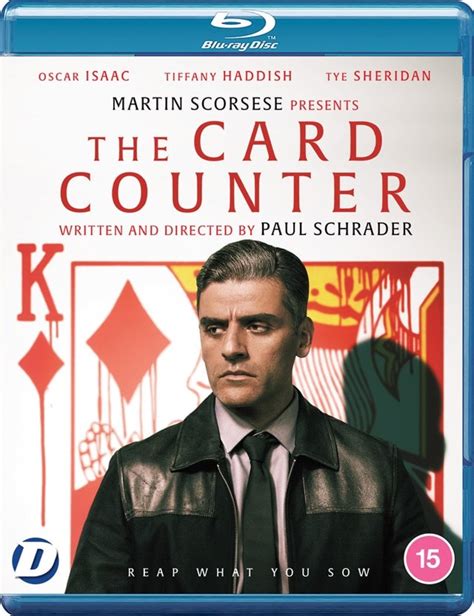The Card Counter

Description:
Card Counter follows William Tell, a former military interrogator who becomes a disciplined, solitary gambler. He uses card-counting skills to rebuild a life he cannot fully trust. An ambitious recruit and a haunting past threaten to pull him into old patterns, forcing Tell to confront guilt, mentorship, and the possibility of redemption. Schrader crafts a restrained, moody thriller with stark imagery and quiet moral questions that linger after the final hand.Keywords:
Monologue, Crime Drama, Neo Noir, Character Study, GamblingIs The Card Counter worth seeing?
"The Card Counter," directed by Paul Schrader, is worth seeing if you appreciate character-driven dramas with psychological depth. The film stars Oscar Isaac as a former military interrogator turned gambler, exploring themes of trauma, redemption, and the moral complexities of gambling. It features strong performances, particularly from Isaac, and a distinctive visual style. The pacing is contemplative, so it may not appeal to everyone, but if you enjoy introspective cinema that delves into the human psyche, it's definitely worth a watch.
Why did he wrap the furniture in The Card Counter?
In "The Card Counter," the protagonist, William Tell, wraps the furniture in his hotel room as a way to create a controlled and sterile environment. This action symbolizes his desire to isolate himself from the past and the emotional scars he carries from his time in prison and his involvement in military interrogations. The wrapping represents his struggle with trauma, guilt, and his attempts to maintain a sense of order and detachment in his life as he navigates his relationship with a young man seeking revenge.
What was The Card Counter about?
"The Card Counter," directed by Paul Schrader, follows a former military interrogator named William Tell, played by Oscar Isaac, who has turned to a life of gambling after serving time in prison. Haunted by his past, he seeks redemption through poker while mentoring a young man, Cirk, played by Tye Sheridan. As they embark on a road trip to a high-stakes tournament, Tell confronts his trauma and the moral implications of his past actions, exploring themes of guilt, redemption, and the allure of chance.
What happens at the end of The Card Counter?
At the end of "The Card Counter," William Tell, played by Oscar Isaac, confronts his past and the trauma of his time in military prison. After helping a young man named Cirk seek revenge on the man who wronged them both, Tell ultimately decides against committing violence. Instead, he chooses to face his own demons and accept the consequences of his actions. The film closes with Tell returning to a casino, reflecting on his life choices, and acknowledging the burden of his past as he continues to play cards, symbolizing his ongoing struggle for redemption.
Explore More Categories: